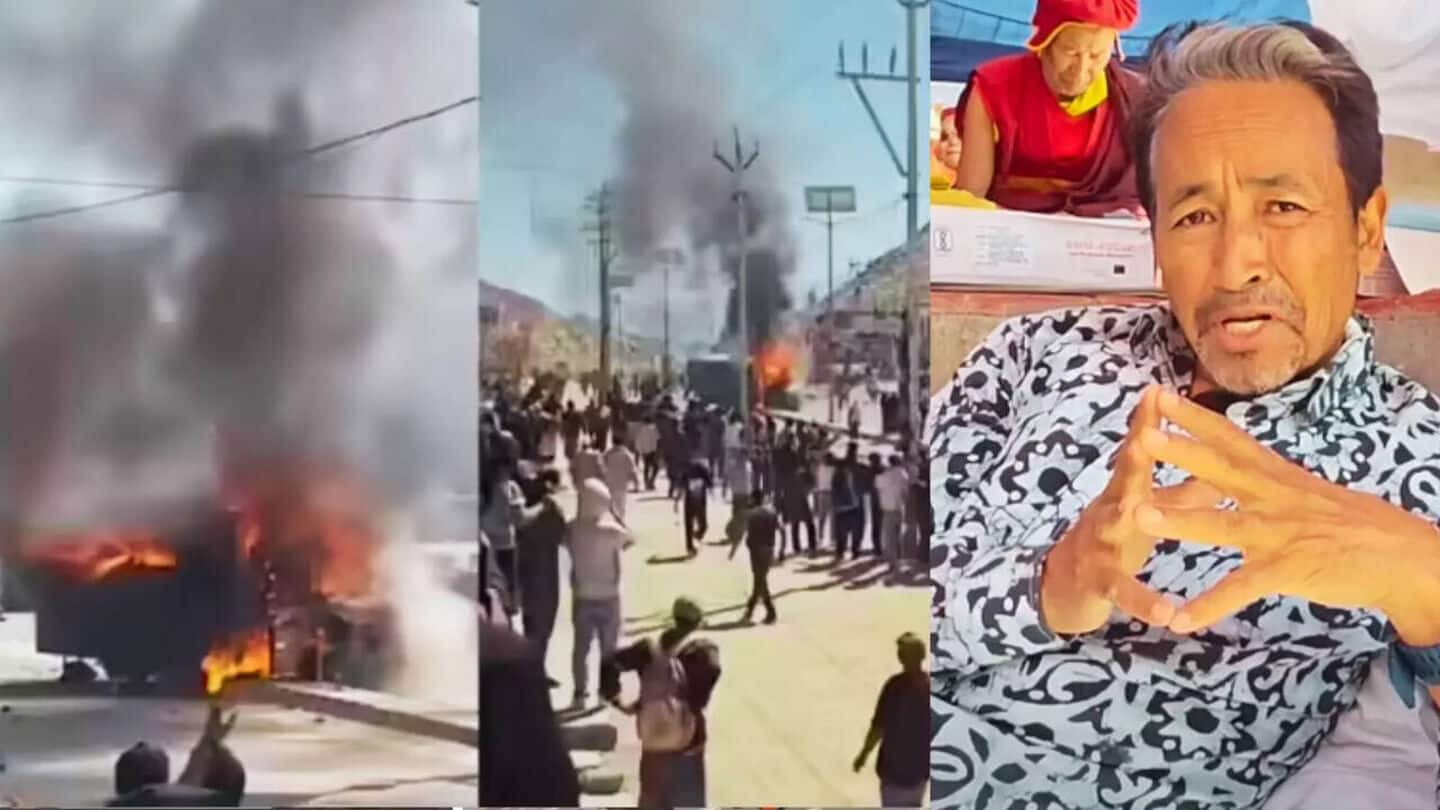
Congress leader charged after Centre blames Wangchuk for Ladakh protests
What's the story
Congress Councilor Phuntsog Stanzin Tsepag has been charged in connection with the violence in Leh, Ladakh on Wednesday, that left four protesters dead and 90 others injured. The move came after the Bharatiya Janata Party (BJP) blamed the Congress party for the violence, during which a mob set fire to the saffron party office and Ladakh Hill Council Secretariat. An FIR has been filed against Tsepag for his alleged involvement in violence and arson.
Legal action
Congress councilor charged in violence
The violence led to a curfew in Leh district, with the Indo-Tibetan Border Police, Central Reserve Police Force, and local police deployed to maintain order. Restrictions were also imposed in Kargil after a shutdown call for statehood and constitutional safeguards for Ladakh. The turmoil erupted during a shutdown announced by the Leh Apex Body (LAB), which has been spearheading a five-year campaign seeking statehood for Ladakh. Some of the protesters had been on a 35-day hunger strike since September 10.
Accusations
Centre blames climate activist for mob attack
Following the violence, the Home Ministry blamed climate activist Sonam Wangchuk for instigating the mob through his provocative speeches. Wangchuk had been on a hunger strike for the last 15 days, demanding statehood and constitutional safeguards for Ladakh, but called it off after the violence erupted. In a statement, the Ministry of Home Affairs accused him of misleading people with references to protests in Nepal and the Arab Spring.
Statement
'It is clear that the mob was guided by Wangchuk'
"In spite of many leaders urging Wangchuk to call off the hunger strike, he continued with it, misleading the people through provocative mention of Arab Spring-style protests and references to Gen Z protests in Nepal," the ministry said. It added that the mob, driven by Wangchuk's statements, left the hunger strike location and attacked a political party office as well as the CEC's government office. "It is clear that the mob was guided by...Wangchuk through his provocative statements," MHA said.
Growing unrest
Demand for statehood in Ladakh
Ladakh has witnessed growing discontent against direct central rule since it became a Union Territory following the abrogation of Article 370 and the bifurcation of Jammu and Kashmir in 2019. Residents have been calling for statehood and constitutional safeguards to protect their land, culture, and resources. The Centre had formed a high-level committee to address Ladakh's demands, but talks have repeatedly failed. A fresh round of talks is scheduled for October 6, but protesters are demanding an earlier date.